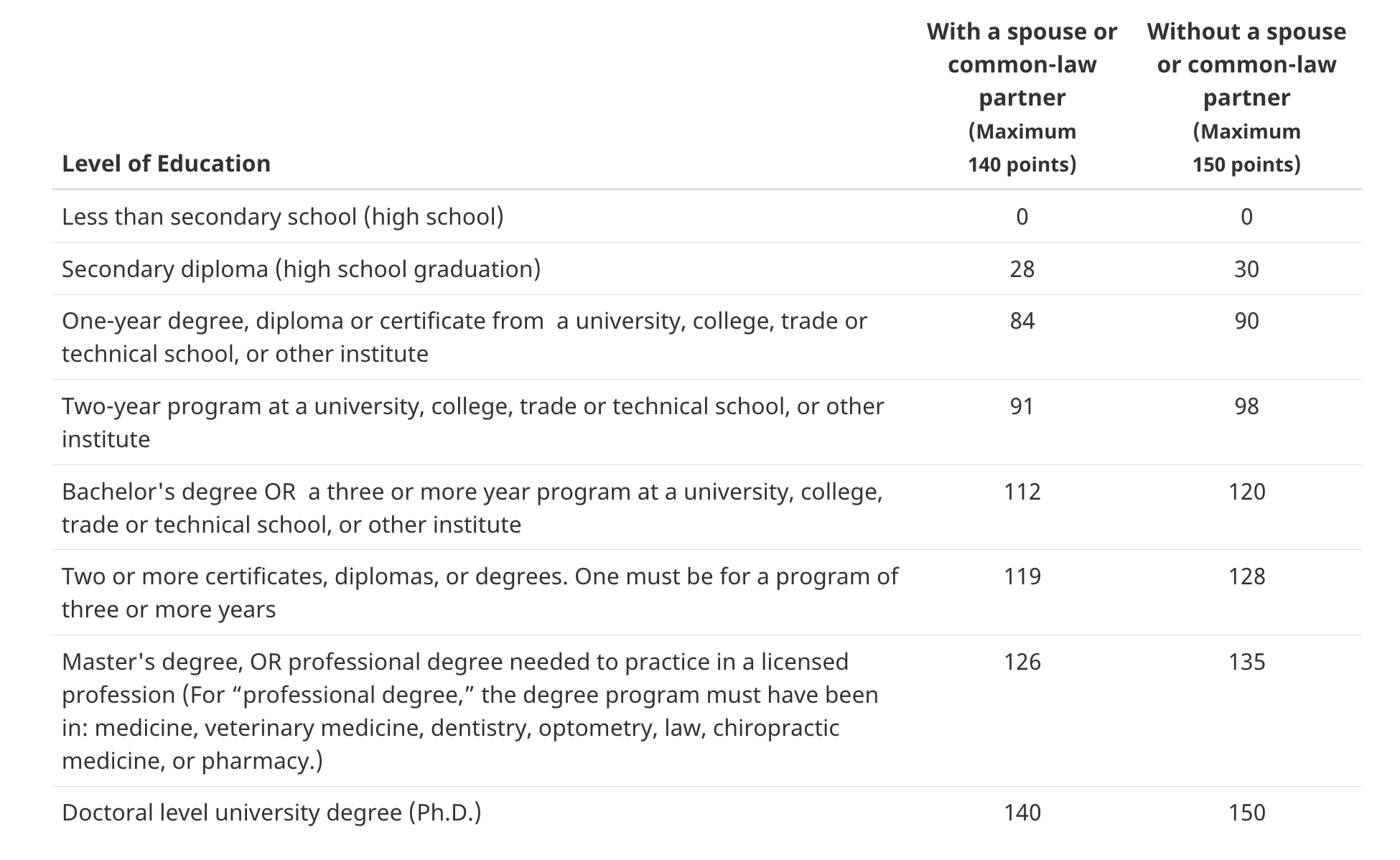How an ECA can help you immigrate to Canada
Many newcomers who want to immigrate to Canada will require some proof of their education level, and what equivalent it holds within the Canadian education system, to prove their eligibility.
This is where an education credential assessment (ECA) serves a critical function for newcomers, helping to contextualize a candidate’s educational achievements for the Canadian immigration system. However, ECA’s can also do much more than prove your eligibility for immigration.
Discover if You Are Eligible for Canadian Immigration
What is an ECA?
An ECA is a document that assesses a newcomer’s international education credential and determines its Canadian equivalent. Newcomers can order ECAs from organizations that are designated by Immigration, Refugees, and Citizenship Canada (IRCC) to assess foreign education credentials.
There are several kinds of ECAs offered by many of these organizations, including ECAs for professional licensing and certification, employment, education, and immigration purposes (among others). Choosing the right ECA for your needs is crucial.
What is included in my ECA for immigration?
Though there is some variation between different service providers, an ECA for Canadian immigration generally includes the following information:
- A verification of your education background;
- The Canadian equivalence of your credential;
- Identification and description of the assessed credential, including:
- Name and year of credential;
- Requirements for entry and program length;
- Status and name of issuing institution; and
- Major/specialization of credential;
How does having an ECA impact my immigration chances?
In addition to proving your eligibility to an immigration pathway or program, an ECA can also be an effective way to increase your immigration chances.
This is because further education tends to be rewarded under the Canadian immigration system, and ECAs are the main vehicle by which IRCC assesses education.
For example, looking at the Comprehensive Ranking System (CRS) scoring grid for a candidate’s education, we can see that the higher a newcomer’s education level, the more points they are awarded under the system.

Therefore, getting your credential assessed may increase your chances of receiving an invitation to apply (ITA) under the Express Entry system, by way of increasing your overall points score.
Assessing more than one credential
Many immigration programs will only require candidates to assess their highest education credential, to determine their eligibility for a program. However, scoring systems may still reward additional education if it can be assessed.
For example, under the CRS scoring grid above, we can see that having “two or more certificates, diplomas, or degrees (with one being from a program of three or more years in length) can earn up to 128 points for single applicants. This is an additional 8 points within the CRS when compared to someone with only a bachelor’s or three-year degree; which can mean the difference between receiving an ITA and not being invited in an Express Entry draw.
Getting different types of ECAs
Pursuing different types of ECAs may also be beneficial to a candidate based on their situation. For example, a candidate may order an ECA for an educational credential to prove their eligibility for a program while also ordering an ECA for a technical degree or professional certification for employment purposes. Both may be assessed and potentially be rewarded (directly or indirectly) under the immigration system.
Continuing this example, if a candidate has a one-year college degree in addition to a professional certification under a skilled trade, they may choose to get both assessed using different kinds of ECAs. Though the individual may not get additional education points under the CRS for their professional certification, an ECA for a professional license or certification can be a powerful way to increase job prospects within the Canadian labour market. An ECA can also be helpful to those in bridging programs who are looking to expedite earning a Canadian credential in a regulated profession, based on their previous professional and education credentials.
This in turn can help secure employment in Canada (which is rewarded under the CRS) and may expedite earning a Canadian certification in a licensed profession. This can further lead to an individual being eligible to apply under different Provincial Nominee Program (PNP) streams depending on their situation, thereby aiding their immigration chances.
PNPs are immigration programs run by provincial or territorial governments, that allow them to nominate newcomers to immigrate to their jurisdictions. Nominations are often based on the educational professional, or human capital factors of candidates.
- Do you need Canadian immigration assistance? Contact the Contact Cohen Immigration Law firm by completing our form
- Send us your feedback or your non-legal assistance questions by emailing us at media@canadavisa.com







